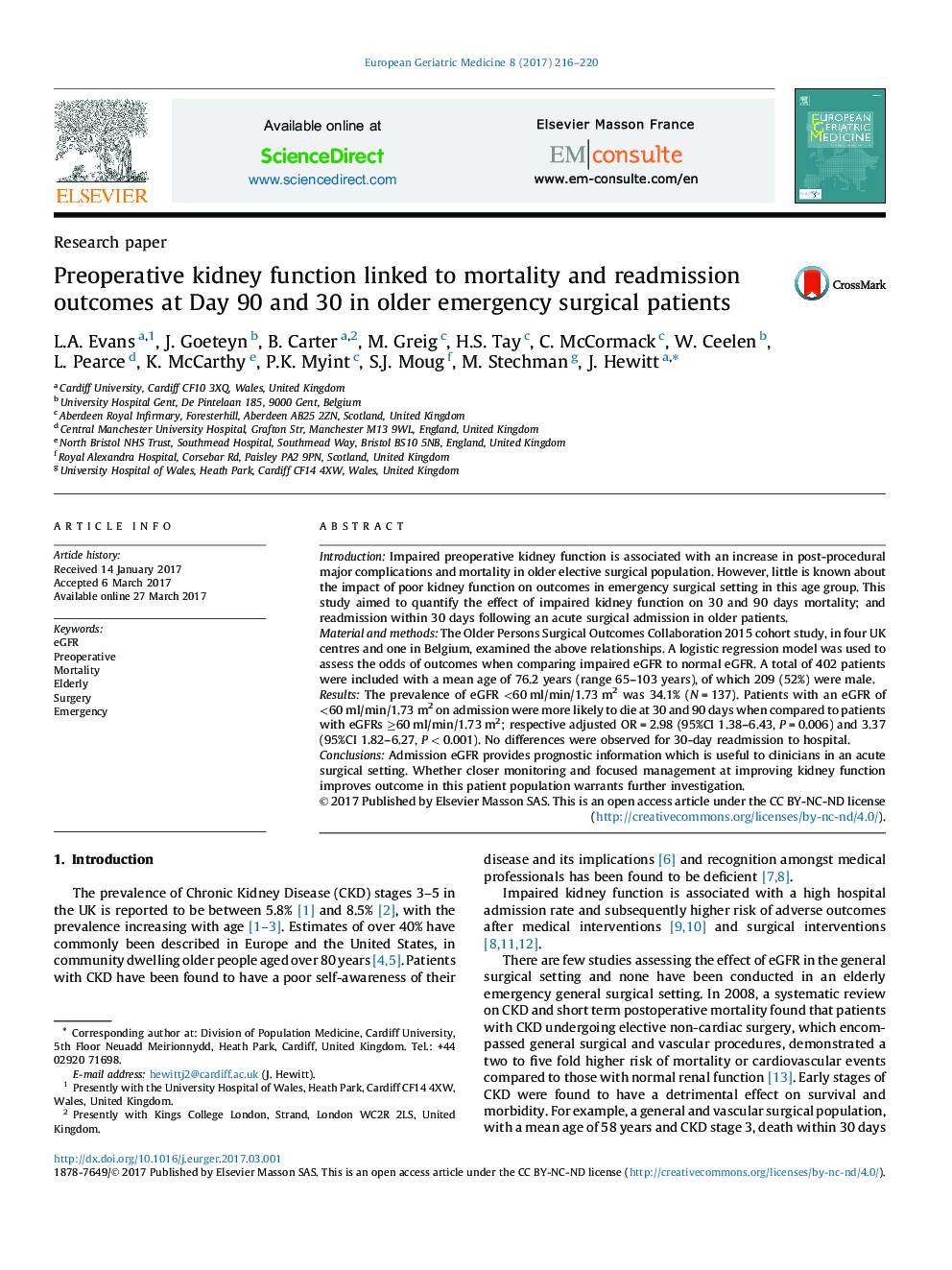| Article ID | Journal | Published Year | Pages | File Type |
|---|---|---|---|---|
| 5662516 | European Geriatric Medicine | 2017 | 5 Pages |
IntroductionImpaired preoperative kidney function is associated with an increase in post-procedural major complications and mortality in older elective surgical population. However, little is known about the impact of poor kidney function on outcomes in emergency surgical setting in this age group. This study aimed to quantify the effect of impaired kidney function on 30 and 90 days mortality; and readmission within 30 days following an acute surgical admission in older patients.Material and methodsThe Older Persons Surgical Outcomes Collaboration 2015 cohort study, in four UK centres and one in Belgium, examined the above relationships. A logistic regression model was used to assess the odds of outcomes when comparing impaired eGFR to normal eGFR. A total of 402 patients were included with a mean age of 76.2 years (range 65-103 years), of which 209 (52%) were male.ResultsThe prevalence of eGFR <60 ml/min/1.73 m2 was 34.1% (N = 137). Patients with an eGFR of <60 ml/min/1.73 m2 on admission were more likely to die at 30 and 90 days when compared to patients with eGFRs â¥60 ml/min/1.73 m2; respective adjusted OR = 2.98 (95%CI 1.38-6.43, P = 0.006) and 3.37 (95%CI 1.82-6.27, P < 0.001). No differences were observed for 30-day readmission to hospital.ConclusionsAdmission eGFR provides prognostic information which is useful to clinicians in an acute surgical setting. Whether closer monitoring and focused management at improving kidney function improves outcome in this patient population warrants further investigation.
